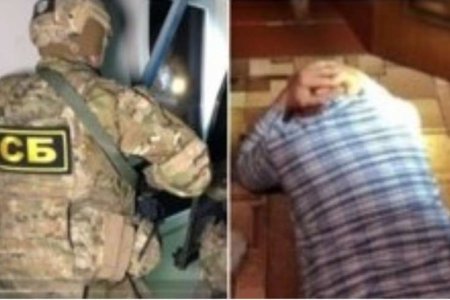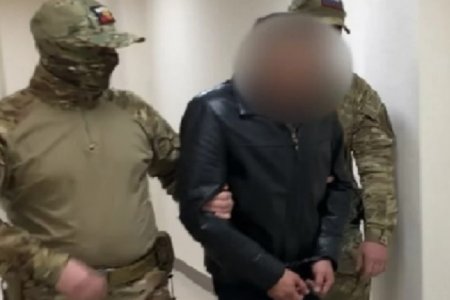
A Russian-controlled ‘court’ in occupied Crimea has formally remanded Appaz Kurtamet in custody, almost three months after the 20-year-old vanished while trying to visit relatives in Crimea. It is very likely that he was subjected to torture during the months in which he was held incommunicado.
It was only on 10 October that the occupation ‘Kievsky district court’ in Simferopol formally remanded Kurtamet in custody until 5 December, Crimea SOS spokesperson Yevhen Yaroshenko stresses that the young Crimean Tatar had been held incommunicado since 23 July, with no legal status and without access to a lawyer and must be considered a victim of enforced disappearances.
As reported, Appaz Kurtamet set off on 23 July from his home in Novooleksiivka (Kherson oblast) to visit relatives in occupied Crimea. He rang his parents when he arrived at the Chonhar administrative border where the Russian FSB are illegally controlling who enters Crimea and disappeared. The following day, his mother received a call from a total stranger who claimed to be ringing at her son’s request and who told her that Appaz had been detained while going through the checkpoint.
This was no detention since the young man simply vanished. Almost a month after his disappearance, Refat Chubarov, Chair of the Mejlis of the Crimean Tatar people reported that Kulamet’s mother had come up against a brick wall when she tried to find out where her son, if he had been ‘detained’, was being held. She had learned from some unofficial channels, that her son was being held at the Simferopol SIZO [remand prison], however the SIZO administration claimed that he was not there. The FSB also denied any knowledge of his whereabouts.
It is clear that, at very least, the FSB were lying and that they were holding the young man prisoner. Such flagrant violation of the procedure for detaining a person almost certainly means that the FSB were using torture and other illegal methods to either force Appaz into ‘confessing’ to whatever was demanded of him, or to pressure him into giving false testimony against others. The methods used are known to include electric currents attached to particularly sensitive parts of the body (including genitals), savage beatings and mock executions.
It is now known that the young man is accused of ‘financing the Ukrainian Azov Regiment’. This extraordinary charge is under Article 208 of Russia’s criminal code *’the organization of an unlawful armed formation or participation in it, as well as the participation in an armed conflict or armed activities for purposes which run counter to the interests of the Russian Federation.’
It is extremely likely that Kurtamet had absolutely nothing to do with the Azov Regiment and that the FSB have used the near-three months in which he was at their mercy to extract ‘confessions’ or in other ways fabricate the charges. That, however, is not the only shocking part of this case. The Azov Regiment is a part of Ukraine’s National Guard and is in no way ‘an unlawful armed formation’. Russia has abducted a Ukrainian citizen from Ukrainian territory and is threatening him with a long prison sentence on charges of involvement in a legal Ukrainian regiment. Even Russia acknowledges that the law is not retroactive, yet these actions are against a person from Kherson oblast which Russia only claimed to have annexed on 30 September. The charges are additionally grotesque as Kurtamet was abducted on 23 July, over a week before Russia’s Supreme Court passed yet another of its many politically motivated rulings and declared the Azov regiment ‘a terrorist organization’.
Russia’s invasion and annexation of Crimea in 2014 brought enforced disappearances, as well as killings and political persecution, with Crimean Tatars particularly targeted. Since Russia’s full-scale invasion of Ukraine and its occupation of parts of Kherson oblast, the abductions of Crimean Tatars and other Ukrainians from newly occupied territory have intensified. While the whereabouts of many of the victims remain unknown, there have been a number of cases where men or women were abducted from mainland Ukraine and were then found imprisoned in occupied Crimea, facing totally illegal charges under Russian law.



